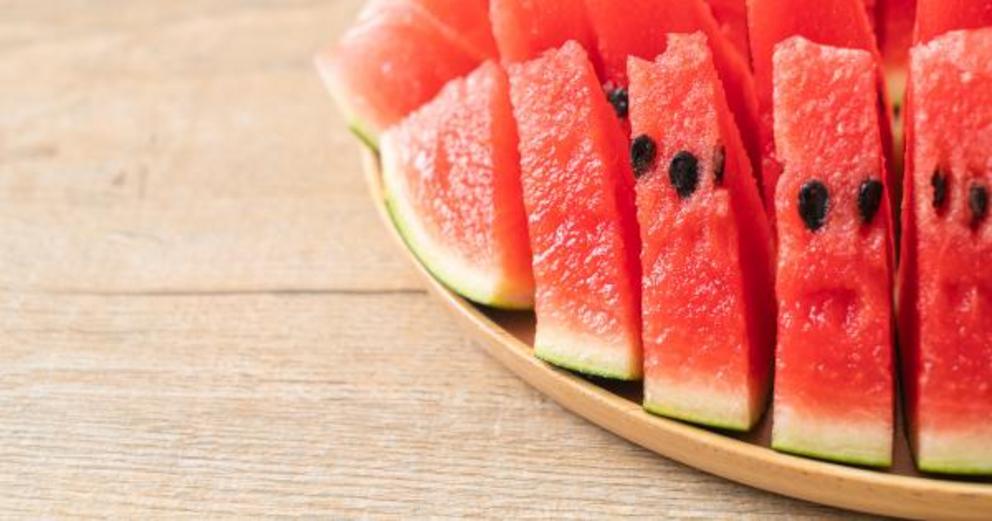Six top benefits of citrulline
Written By: GreenMedInfo Research Group
Your body converts the amino acid citrulline to arginine, which plays a key role in nitric oxide (NO) synthesis. This compound, found in high concentrations in watermelon, is useful for blood pressure, erectile dysfunction, metabolic health and more.
Citrulline, also known as L-citrulline, is a non-essential amino acid metabolized by your kidneys. Your body converts citrulline to arginine, which plays a key role in nitric oxide (NO) synthesis that helps dilate blood vessels and improve blood flow.
Citrulline is found naturally in fruits and vegetables, with watermelon being a top source. In fact, the word citrulline comes from Citrullus lanatus, the scientific name for watermelon.[i] Foods and supplements that boost vascular tone are useful since vascular dysfunction often leads to heart disease.
NO plays an important role in this process, which is why NO precursors like citrulline and arginine are so important. If you're wondering why you'd focus on citrulline instead of arginine -- since your body converts the former into the latter -- a 2022 study published in Nutrients explained it this way: "[S]upplementation of L-citrulline is recommended instead of L-arginine since most L-arginine is catabolized during its course to the endothelium."[ii]
Other research also found that citrulline supplementation is more efficient at increasing arginine availability than arginine supplementation itself.[iii] That being said, why is consuming citrulline so important? Here are its top benefits. For a full review, see our citrulline research database, which includes 30 diseases and 12 pharmacological actions attributed to this crucial compound.
Top 6 Citrulline Health Benefits
1. Reduce Blood Pressure
Citrulline has a positive effect on blood pressure due to its ability to increase NO level. One systematic review and meta-analysis found citrulline supplementation of 6 grams a day or more led to a significant reduction in systolic blood pressure.[iv] Citrulline supplementation also led to reduced blood pressure in people with obesity and high blood pressure or pre-hypertension.[v]
2. Improve Erectile Dysfunction
While arginine improves vasodilation and endothelial function mediated by NO, it's not always useful when taken orally because it's largely metabolized before being absorbed systemically. "L-citrulline," however, "escapes presystemic metabolism and is converted to L-arginine, thus setting the rationale for oral L-citrulline supplementation as a donor for the L-arginine/nitric oxide pathway of penile erection," researchers wrote in the journal Urology.[vi]
They found that 1.5 grams of citrulline a day for one month led to improvements in erection hardness in men with mild erectile dysfunction. Citrulline supplementation was "safe and psychologically well accepted by patients," the study found, noting that "All patients reporting an erection hardness score improvement from 3 to 4 reported being very satisfied."[vii]
Citrulline, taken as part of a supplement drink that also contained testofen, resveratrol and caffeine, also improved erection firmness and frequency, along with libido dysfunction, among men with sexual dysfunction when taken for 14 days.[viii]
3. Improve Asthma Control
Obese people with asthma tend to have airways that are deficient in NO. This leads to airway dysfunction that can make asthma control difficult. In a study of obese adults with poorly controlled asthma, 15 grams of citrulline daily for two weeks improved asthma control and increased NO.[ix]
4. Delay Sarcopenia
From about the age of 30, a gradual decrease in muscle mass occurs that leads to a reduction in strength. This age-related process, known as sarcopenia, is associated with muscle wasting and degeneration due to muscle atrophy and muscle cell death. Exercise is known to help delay sarcopenia, but adding citrulline to exercise may provide an extra boost.
In a study of 44 adults aged 60 to 73 years, those who engaged in physical activity and took a citrulline supplement had improved strength and endurance, along with significantly improved walking speed.[x] Improvements in markers of muscle damage were also noted. Other research has revealed that citrulline stimulates muscle protein synthesis by "specifically reallocating mitochondrial fuel to the protein synthesis machinery."[xi]
5. Improve Athletic Performance
Citrulline malate is a combination of citrulline and malic acid, which may increase bioavailability. Among athletes engaging in high-level training or competitions, citrulline malate may be useful for enhancing athletic performance and relieving muscle soreness.
In a study involving flat barbell bench presses, 8 grams of citrulline malate taken before a training session led to a significant increase in the number of repetitions performed (52.92%) and a significant decrease in muscle soreness (40%) 24 hours and 48 hours later.[xii] A citrulline-arginine duo has also been found to boost athletic performance.
6. Support Metabolic Health
Citrulline may also be useful for people with obesity and Type 2 diabetes. In a study of 45 such patients, citrulline supplementation at a dose of 3 grams a day for eight weeks led to decreased levels of insulin, glucose, triglycerides and markers of inflammation, along with an increase in beneficial HDL cholesterol.[xiii]
Will Eating Watermelon Do?
Watermelon is a top source of citrulline, with about 200 milligrams to 300 milligrams of citrulline per cup of fruit.[xiv] Yellow watermelon contains higher concentrations than pink-fleshed varieties, as does the rind,[xv] which can be added to smoothies or juices.
While you can certainly get meaningful quantities of citrulline from watermelon, for therapeutic effects you may need a supplement. However, the wonderful thing about watermelon is it contains other powerful compounds, like lycopene, that offer synergistic benefits. A holistic health care practitioner can help you decide if citrulline supplementation and/or dietary changes based on whole foods will work best to achieve your health goals.
© January 26th 2023 GreenMedInfo LLC. This work is reproduced and distributed with the permission of GreenMedInfo LLC. Want to learn more from GreenMedInfo? Sign up for the newsletter here //www.greenmedinfo.com/greenmed/newsletter.
For full references please use source link below.

